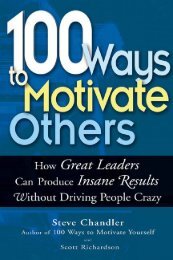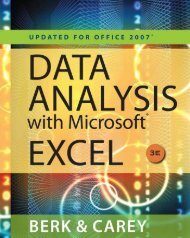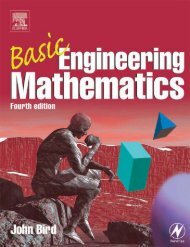How-to-Write-a-Better-Thesis
Create successful ePaper yourself
Turn your PDF publications into a flip-book with our unique Google optimized e-Paper software.
74 6 Background Chapters<br />
Developing Critical Thinking<br />
One approach <strong>to</strong> thesis writing requires students <strong>to</strong> review the literature and produce<br />
a chapter entitled Literature Review’, thorough and polished, before they are<br />
permitted <strong>to</strong> proceed with their own work. The idea is that, informed by a literature<br />
review, they would be able <strong>to</strong> see just where previous researchers had drawn unwarranted<br />
conclusions or had disagreed with each other, and would then be able <strong>to</strong><br />
design brilliant experiments <strong>to</strong> resolve these problems.<br />
You certainly should read the literature before you leap in<strong>to</strong> a full-scale research<br />
program, and should also attempt <strong>to</strong> write down your understanding of it. This is<br />
a good way <strong>to</strong> learn how <strong>to</strong> follow the important arguments through, and <strong>to</strong> understand<br />
the agreements and disagreements. But until you have done some work<br />
of your own—perhaps collected and analyzed some data, for example—it is not<br />
possible <strong>to</strong> be ‘critical’ in the sense implied by ‘a critical review of the literature’.<br />
It follows that you will not yet be able <strong>to</strong> design those brilliant experiments that<br />
have so far eluded the other researchers in your area. You may be able <strong>to</strong> design a<br />
research program, but almost certainly it will be tentative. With luck, the results of<br />
this preliminary program may help you <strong>to</strong> design a better set of surveys or experiments<br />
next time (by which time you will have thought about it a bit more, and will<br />
have gone back and re-read the literature). It also follows that your reviewing of the<br />
literature is an ongoing process. You should still be reading it when you are setting<br />
out results, discussing your findings, and writing conclusions.<br />
<strong>How</strong> do you convert your initial ‘literature survey’ in<strong>to</strong> a critical review of existing<br />
theory that will lead logically in<strong>to</strong> the work that you design and undertake<br />
yourself? A review of current theory serves three purposes: it gives the background<br />
information required <strong>to</strong> contextualize the extent and significance of your research<br />
problem; it identifies and discusses attempts by others <strong>to</strong> solve similar problems;<br />
and it provides examples of methods they have employed in attempts <strong>to</strong> get these<br />
solutions. Make sure you deal with all of these.<br />
The first purpose is the most straightforward. Its sole purpose is <strong>to</strong> establish the<br />
parameters of your argument. Guide yourself through this section of the research<br />
by asking the four standard journalist’s questions: Who? What? Where? And when?<br />
Keep this section short, and do not get caught up in unnecessary detail. Simply put,<br />
it provides a map of the terri<strong>to</strong>ry you are seeking <strong>to</strong> cover. It signals <strong>to</strong> your readers<br />
that you intend <strong>to</strong> follow the scope of your investigation and are confident enough<br />
<strong>to</strong> guide them through the complexities of the <strong>to</strong>pic.<br />
First attempts <strong>to</strong> review existing theory often s<strong>to</strong>p after an initial draft. But when<br />
you have put your problem in the context of ongoing research in the area you have<br />
hardly started! Identifying and discussing possible solutions <strong>to</strong> your problem is the<br />
second purpose of your review. This is where you need those critical skills. It is<br />
likely (and expected) that you will have read much more widely in the <strong>to</strong>pic area<br />
than you need for your review. Your initial journey through the literature will have<br />
helped you <strong>to</strong> gain a better understanding of the many complex facets of your cen-


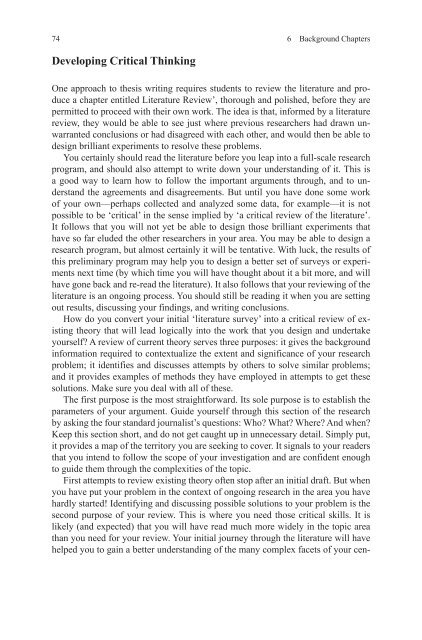

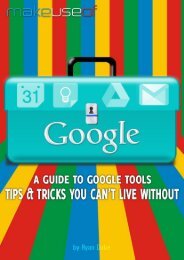
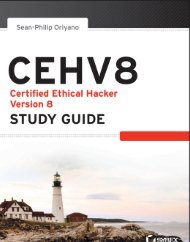
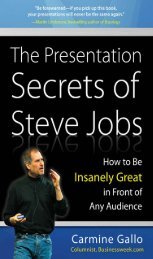
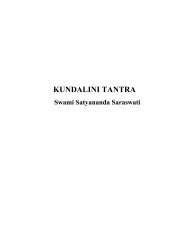
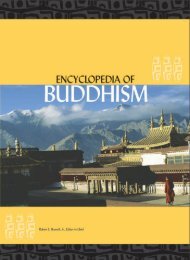
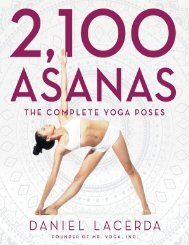
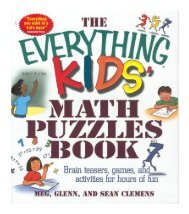


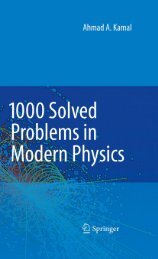
![[Lonely Planet] Sri Lanka](https://img.yumpu.com/59845622/1/169x260/lonely-planet-sri-lanka.jpg?quality=85)
